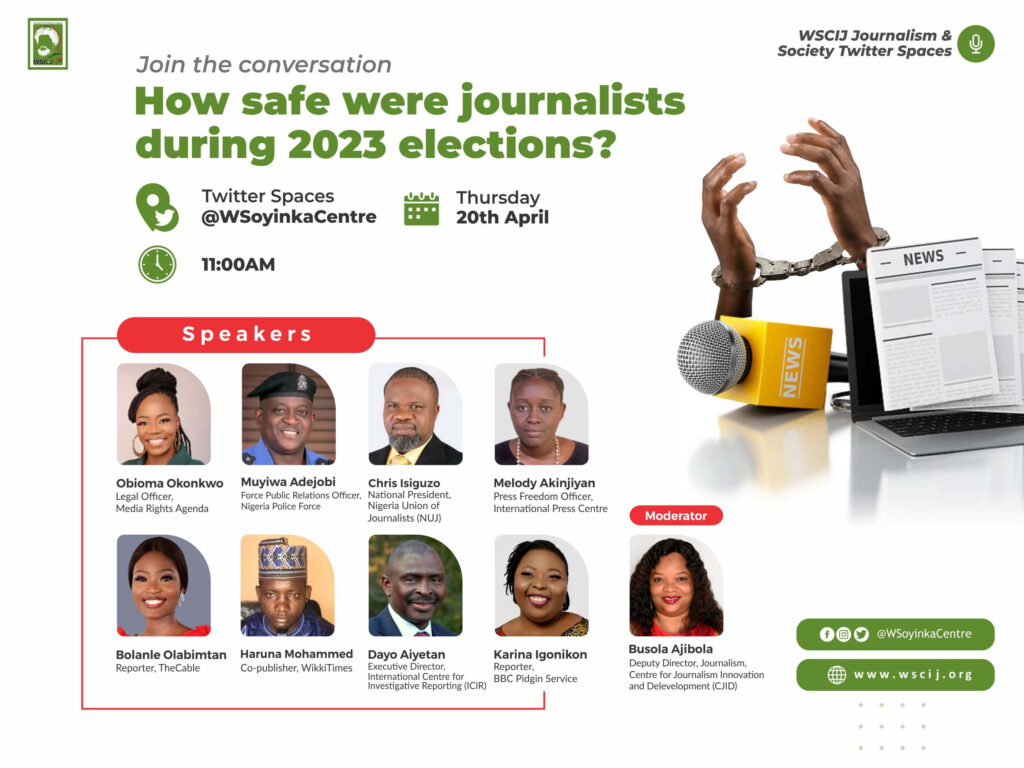The Twitter Spaces to appraise the safety of journalists during the 2023 general elections is scheduled for Thursday, 20 April between 11:00 am and 12:30 noon, according to Motunrayo Alaka, Executive Director/CEO, WSCIJ.
Representatives of the Nigeria Police Force, Civil Society Organisations (CSOs) and journalists will appraise the safety of journalists during the 2023 general elections at the April edition of Wole Soyinka Centre for Investigative Journalism (WSCIJ) Twitter Spaces billed for Thursday, 20 April between 11:00 am and 12:30 noon. This virtual engagement will provide a healthy platform for assessing the 2023 general elections, learning from experience sharing; and proffering solutions for improving the safety of journalists. Participants can join the conversation here.
The engagement themed: “How safe were journalists during 2023 elections?” is hinged on the documented incidents of harassment, intimidation, arrest and detention of journalists on electoral duties. The conversation will highlight the implications of journalists’ safety concerns in the discharge of their duties – upholding the responsibility and accountability of the government to the people as the fourth estate of the realm.
Muyiwa Adejobi, Force Public Relations Officer, Nigeria Police Force Headquarters, Abuja, will join Obioma Okonkwo, Legal Officer, Media Rights Agenda; Bolanle Olabimtan, Reporter, TheCable; and Haruna Mohammed Salisu, Co-publisher, WikkiTimes, as panelists at the Twitter Spaces.
In addition, Melody Akinjiyan, Press Freedom Officer, International Press Centre; Dayo Aiyetan, Executive Director, International Centre for Investigative Reporting; Chris Isiguzo, National President, Nigeria Union of Journalists; and Karina Igonikon, Reporter, BBC Pidgin Service, will share their experiences and realities during the virtual conversation; while Busola Ajibola, Deputy Director, Centre for Journalism Innovation and Development, will moderate the conversation.
WSCIJ Journalism & Society Twitter Spaces was designed as a forum for online discussions about the place of the media in society, both nationally and globally, and how journalists and the media perform in this context. This edition is open to journalists, law enforcement agents, the electoral umpire, civil society organisations, human rights advocates, students of communication, political science and journalism and the public.

